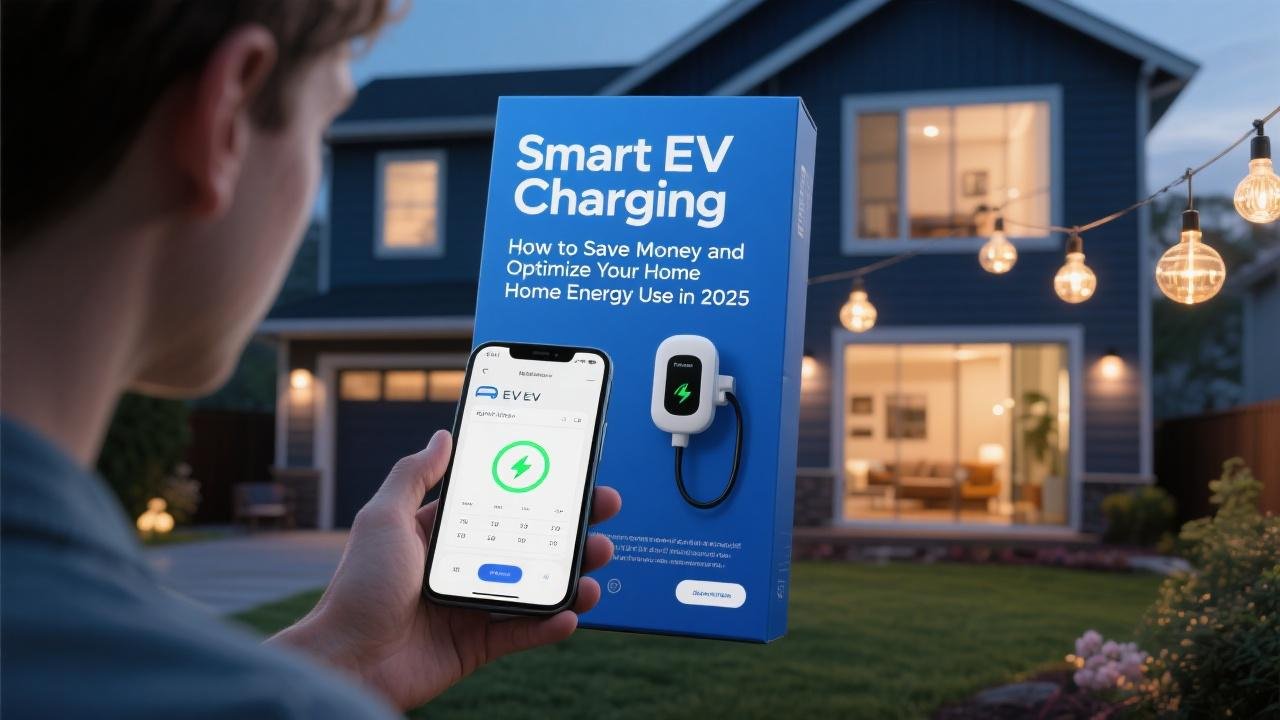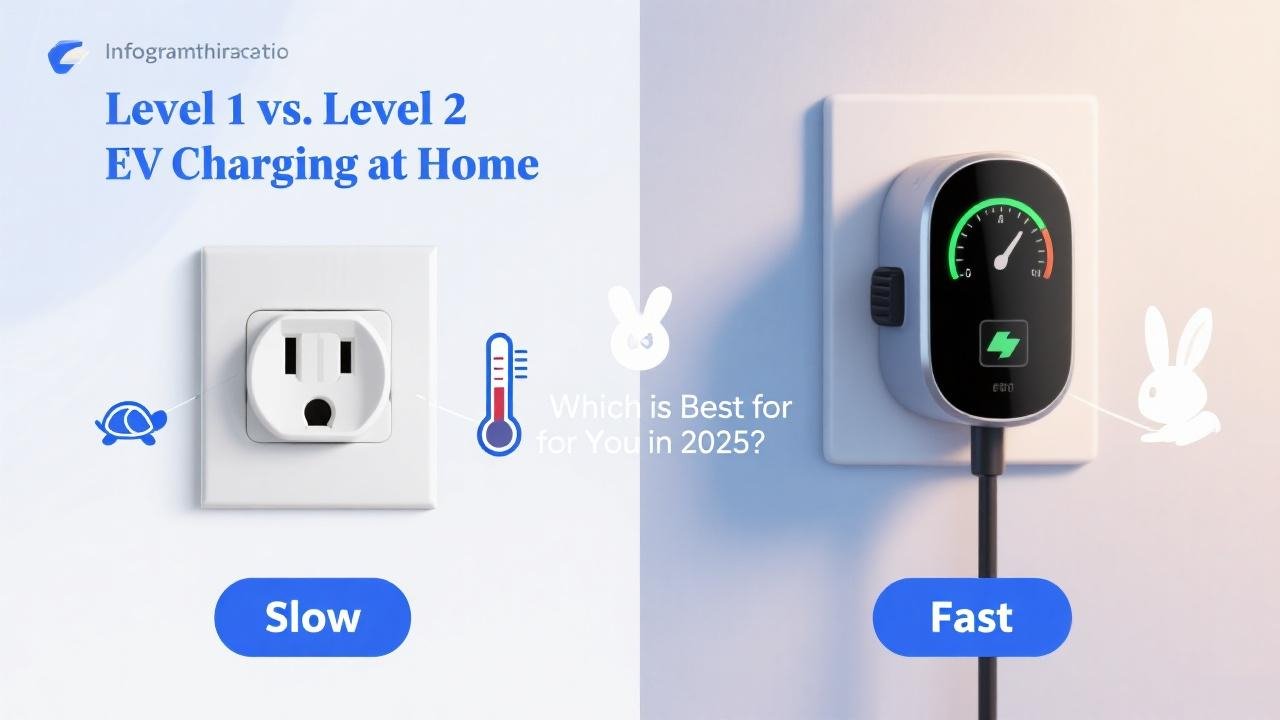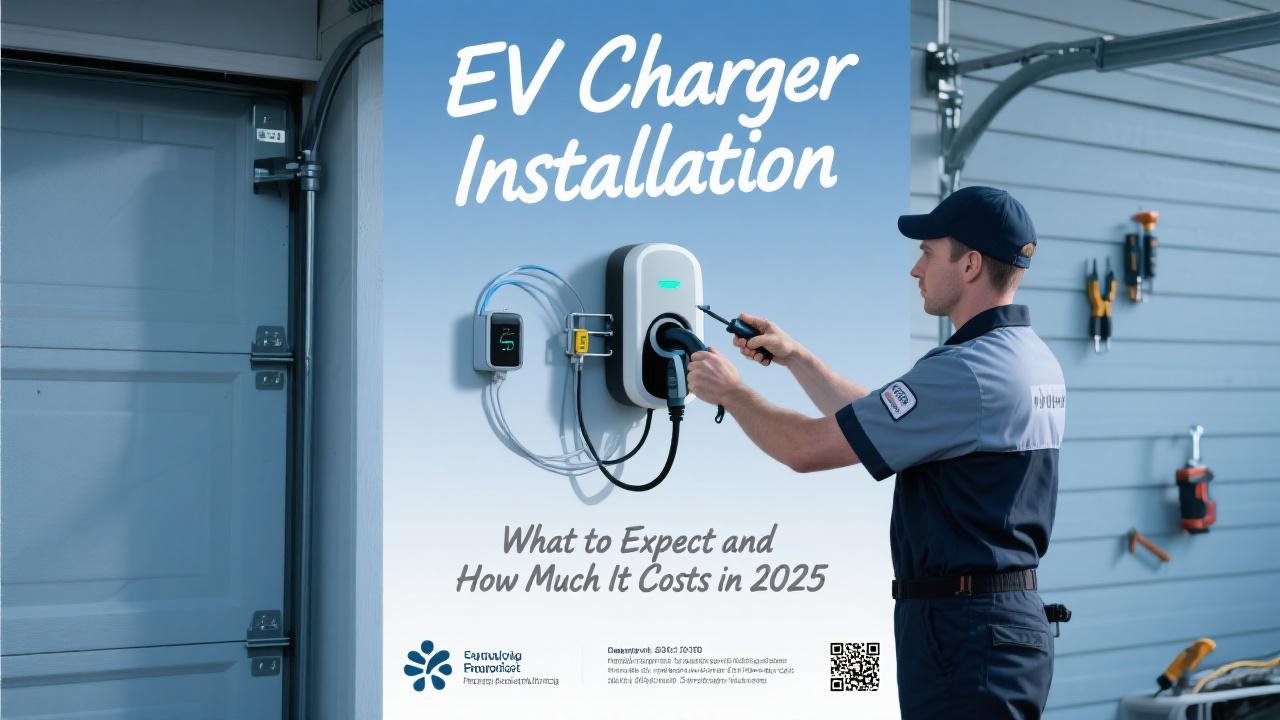Charging Smarter, Not Harder, in 2025
Owning an electric vehicle (EV) in 2025 brings the convenience of refueling at home, but savvy EV owners know there’s more to it than just plugging in. Smart EV charging technology transforms your home charger from a simple power dispenser into an intelligent device that can save you money, optimize your energy consumption, and even integrate seamlessly with other home energy solutions like solar panels and battery storage. As utility rate structures become more dynamic and home energy systems more connected, understanding and utilizing smart EV charging features is key to maximizing the benefits of your electric vehicle.
This guide explores the world of smart EV charging, its benefits, and how it can help you charge more efficiently and cost-effectively.
What Makes an EV Charger “Smart”?
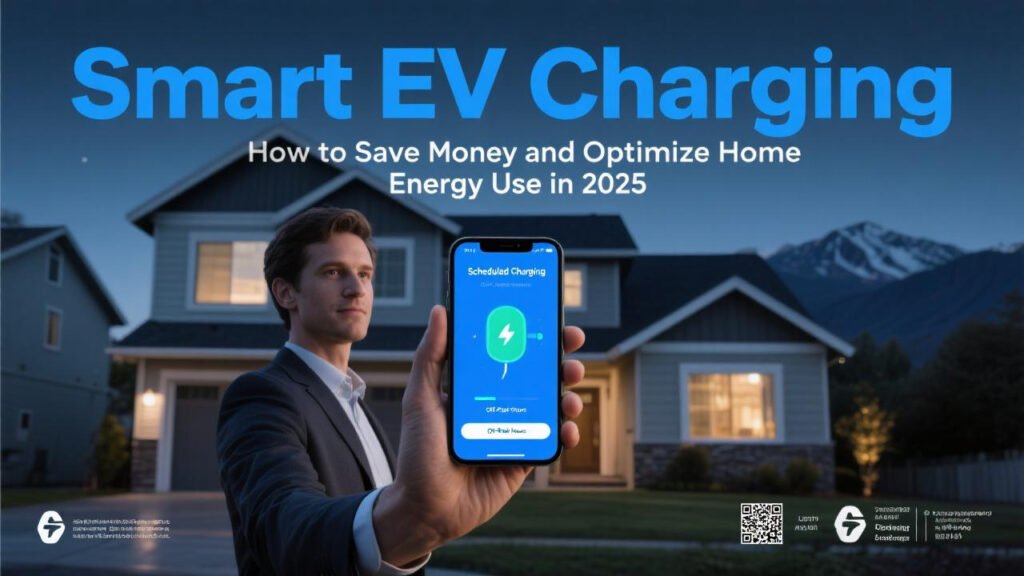
Unlike basic (non-networked) chargers that simply deliver power when an EV is plugged in, smart EV chargers connect to your home Wi-Fi or use cellular data, unlocking a range of advanced functionalities, typically managed through a smartphone app. These features are designed to give you more control, visibility, and cost-saving opportunities.
Key smart features available in 2025 chargers like the ChargePoint Home Flex or Emporia EV Charger include :
- Remote Monitoring and Control: Start, stop, and monitor charging sessions from anywhere using a mobile app.
- Scheduled Charging: Program your charger to start and stop charging at specific times.
- Usage Tracking and Cost Monitoring: Get detailed reports on your charging history, energy consumed, and estimated costs.
- Load Management (Load Balancing): Prevents overloading your home’s electrical panel.
- Software Updates: Receive over-the-air firmware updates for new features and performance improvements.
- Utility Program Integration: Some smart chargers can participate in utility demand response programs or special EV charging rates.
Benefit 1: Saving Money with Scheduled Charging and Time-of-Use (TOU) Rates
One of the most significant financial benefits of smart EV charging comes from its ability to work with Time-of-Use (TOU) electricity rates. Many utilities now offer TOU plans where the price of electricity varies throughout the day, being more expensive during “on-peak” hours (typically late afternoon/early evening) and cheaper during “off-peak” hours (late night/early morning).
- How it Works: With a smart charger, you can schedule your EV to charge only during off-peak hours when electricity is cheapest. For example, you can plug in your car when you get home from work, but program the charger to wait until 11 PM (or whenever your off-peak rates begin) to start charging.
- Savings Potential: Charging during off-peak hours can save you up to 30% or more on your EV charging costs compared to charging during peak times. This can translate to substantial annual savings, especially if you drive frequently. The ChargePoint Home Flex, for instance, allows for detailed scheduling to align with these variable rates.
Benefit 2: Avoiding Electrical Panel Overloads with Load Management
Level 2 EV chargers draw a significant amount of power. If your home’s electrical panel has limited capacity, running the EV charger simultaneously with other high-power appliances (like an electric dryer, oven, or central AC) could overload the panel and trip a breaker, or worse, necessitate an expensive panel upgrade.
- How Load Management Works: Smart chargers with load management (sometimes called load balancing) monitor your home’s total electrical consumption. If the system detects that the overall load is approaching the panel’s capacity, it will temporarily reduce the charging speed of the EV charger until sufficient capacity is available again.
- Avoiding Costly Upgrades: This feature can be a lifesaver, potentially saving you thousands of dollars on a main electrical panel upgrade, which can cost $1,000-$4,000+. The Emporia EV Charger is noted as an affordable option for obtaining load management functionality, often via a $200 add-on.
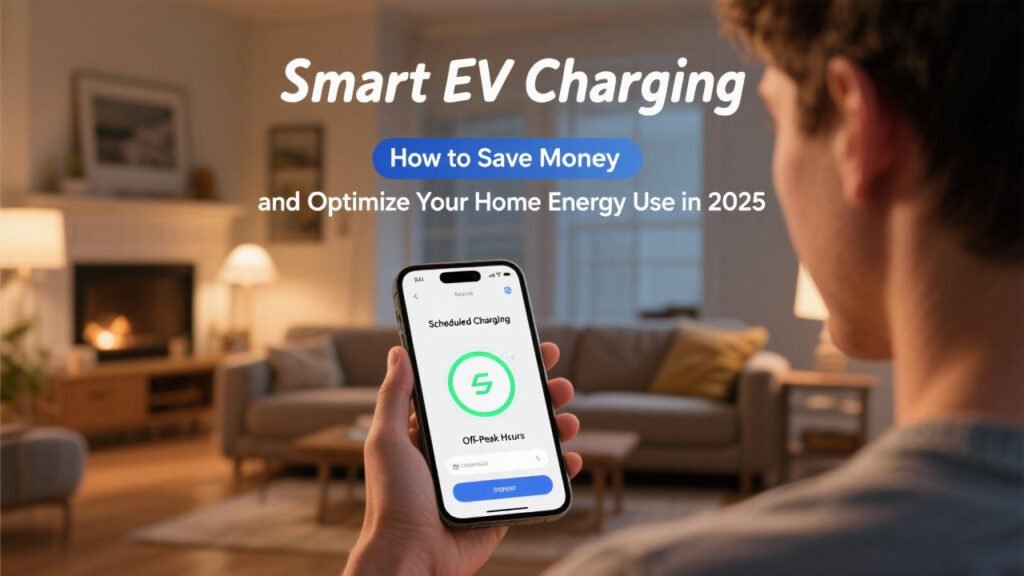
Benefit 3: Integrating EV Charging with Solar Panels and Home Batteries
For homeowners with solar panels, smart EV charging unlocks even greater synergies and savings.
* Charge on Sunshine: Some smart chargers can be programmed to prioritize charging your EV using only excess solar energy generated by your rooftop panels. This means you’re fueling your car with free, clean energy.
* Optimizing with Battery Storage: If you have a home battery, a smart EV charging system can work in concert with it. For example:
* Prioritize charging the home battery with solar first, then use remaining excess solar for the EV.
* During a grid outage, the system might prevent EV charging to conserve battery power for essential home loads, or allow controlled EV charging if there’s sufficient stored energy.
* Holistic Home Energy Management: Companies like Emporia, which offer a suite of energy monitoring devices, allow you to see and manage EV charging within your overall home energy ecosystem via a single app.
Benefit 4: Enhanced Visibility and Control
Smart EV chargers provide valuable data and control that basic chargers don’t offer:
* Track Your Consumption: Understand exactly how much electricity your EV is using and how much it’s costing you to charge.
* Remote Access: Forgot to plug in or need to start charging sooner than scheduled? You can often control your charger remotely via its app.
* Notifications: Receive alerts when charging starts, stops, or if there’s an issue.
Considerations for Choosing a Smart EV Charger in 2025:
- Connectivity: Ensure reliable Wi-Fi coverage where the charger will be installed, or choose a model with cellular connectivity if Wi-Fi is an issue.
- App Usability: The user-friendliness of the companion app is important for a good experience. Look for intuitive interfaces and the features you need.
- Interoperability: If you plan to integrate with other smart home devices or utility programs, check for compatibility.
- Data Privacy and Security: As with any connected device, consider the manufacturer’s policies on data privacy and security.
The Intelligent Way to Power Your EV
Smart EV charging is more than just a convenience in 2025; it’s a key strategy for optimizing your energy costs, managing your home’s electrical load, and integrating your electric vehicle into a broader clean energy ecosystem. By leveraging features like scheduled charging for TOU rates, load management, and solar integration, you can significantly reduce your EV fueling costs and enhance your home’s overall energy efficiency.
When selecting a Level 2 charger, carefully consider the smart features offered by brands like ChargePoint, Emporia, Tesla, and Wallbox. Investing in a smart charger is an investment in a more cost-effective, convenient, and sustainable EV ownership experience. For a comprehensive approach to home energy, including EV charging and solar, resources like EnergySage can provide valuable insights and connections to expert installers.

